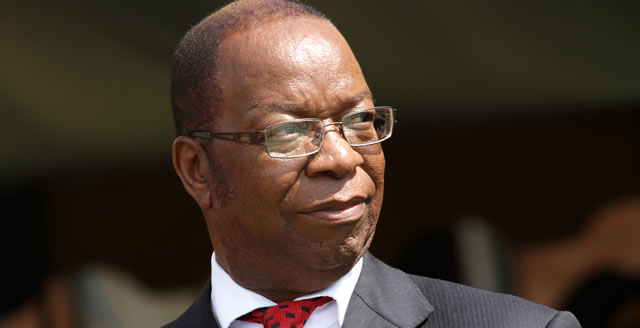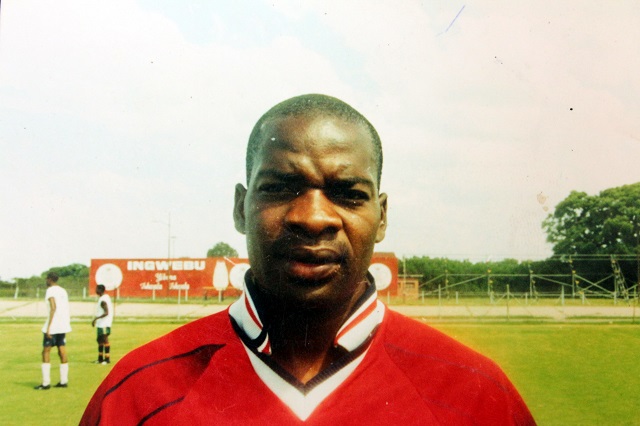EDITORIAL COMMENT: Justice Chidyausiku a cadre par excellence

Justice Godfrey Guwa Chidyausiku, who served in local politics in the 1970s and the early years of our Independence and in the judiciary until March was one of the country’s best brains.
His death in South Africa on Wednesday due to kidney and liver complications at the age of 70 is therefore a tremendous loss, not only for his family but the nation as a whole.
After reading law between 1968 and 1972, Justice Chidyausiku practised for a few years before his election to Parliament in 1974 representing the African National Council that had been formed by Zanu, Zapu and Frolizi. He did much to oppose Ian Smith’s regime for three years before he left politics. His work in parliament then had much gravitas and legitimacy given that he was representing the revolutionary movement.
He returned to politics at Independence in 1980 when he was elected on the Zanu-PF list and was appointed deputy minister of local government and later of justice. Justice Chidyausiku again left politics, never to return, when he became the Attorney General in 1982.
In 2000 Justice Chidyausiku accepted probably his most challenging job then, that of steering the drafting of the country’s first home-grown constitution.
It indeed was an onerous assignment if one considers the time context of his assignment — when emotions were boiling over as blacks were agitating for the reclamation of their land from whites, who at that time were refusing to budge and were receiving support from the Anglo-Saxon world. The draft constitution ended up being a contest over the land question, becoming the deciding factor whether it was to be endorsed in the referendum or not. The
“No” vote prevailed, not because it was a bad law, but because it contained a clause that sought to give constitutional backing to the land reform programme.
A year later, Justice Chidyausiku became the Chief Justice after the resignation of Justice Antony Gubbay in March 2001. Justice Gubbay, a white judge, had angered blacks and the Government by openly opposing the then fledging fast track land reform and redistribution programme. He had to be replaced by a person who had a better grasp of the law and its relationship with the national good. That person had to be Justice Chidyausiku.
“To indigenise means to appoint black lawyers. There is no question about it. This is a black country,” the then Minister of Justice, Legal and Parliamentary Affairs, Cde Patrick Chinamasa, said explaining Justice Chidyausiku elevation.
He is better known for leading the Supreme Court bench which handed down an important judgment on the fast track land reform and redistribution programme. On December 4, 2001, the bench he led declared the land reclamation exercise as legal, adding that the rule of law was actually prevailing on commercial farms.
“To expect the applicant to bring a totally crime-free environment in the commercial farming areas of Zimbabwe would be inconsistent with the concept of the rule of law and its practical application. — The land reform programme is a matter of social justice and not strictly speaking a legal issue,” he declared.
That was a landmark judgment pronounced by Justice Chidyausiku. It cleared the way for the repossession of land that had been taken away by whites through military conquest and plain brute force and with no regard to the rule of law between 1890 and 1979.
Certainly if he had continued in his old position, Justice Gubbay would not have ruled in the same way.
“Look at Gubbay, a very nice man,” said President Mugabe at the time. “But they (judges) drank tea with whites. They sympathise with the whites and cannot be seen to pass judgments against the (white) farmers.”
We are saddened by Justice Chidyausiku’s death because it came at a very untimely moment, just as he was beginning to enjoy his much deserved rest after 43 years of serving his motherland.
However, he leaves a rich legacy of patriotism, hard work, professionalism and consistency even in the face of daunting odds. He played a massive role, through his interpretation of the law, to advance key national policies and programmes.
Without him leading the judiciary, the land reform programme might not have been the success it has been and an enduring lesson it has been for the world’s dispossessed peoples. Without him, the courts could possibly have reversed a popular programme that sought to redress a historical grievance over which tens of thousands died fighting during the First and Second Chimurenga/Umvukela and other systematic, more localised killings that happened as whites gobbled up the land.
We wonder what sort of justice that was going to be, one that tolerates such social injustice. The injustice of having the rightful owners of a resource crammed in small, rocky and infertile pieces of land while the ultimate pillagers frolicked on ill-gotten, expansive fertile farms.
Rest in Peace Son of the Soil, as fine a jurist as they come.











Comments